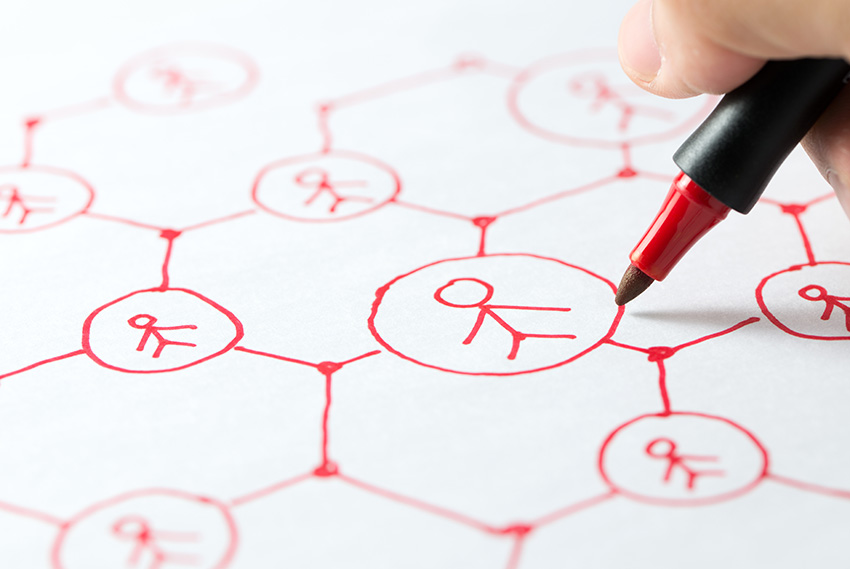We Cannot Predict the Future But We Can Prepare For It by Dan O’Connor
Raising children in the modern interconnected world presents unique challenges beyond merely providing material comfort. Raising children requires parents to prepare them emotionally and mentally to face an ever-evolving landscape of challenges. Resilience, the ability to recover and remain adaptive and robust under adversity, is a crucial quality that parents can instill in their children. There are a variety of ways parents can foster grit, resilience, and preparedness in their children while balancing discipline and embracing failure and regret.
Never underestimate the lifelong impact you have on those you’ve created. There is no more significant role model than a parent or guardian. Children listen with their eyes and reinforce with their ears. All children learn by observing their parents. Parents set the example by exhibiting resilience in their own lives. When facing adversity, discussing a problem-solving process with children, sharing personal experiences of overcoming challenges, and recognizing that success only makes sense and has value when failure is understood as a requirement, not a detriment.
One of the first things parents can do is to encourage children with tests or experiments on independence. In a world full of helicopter parents, schools, organizations, and practically everyone else, parents can foster resilience in their children by allowing them to make small, often inconsequential choices that will grow their independence. Whether selecting their outfit or choosing a meal for dinner, these early decision-making opportunities help children consider their options, make choices, reinforce decision-making, gauge others, and understand the good and bad consequences of their decisions.
As children mature, parents can gradually increase the complexity of decision-making tasks, thereby building their confidence and preparedness for more significant challenges. Instead of rushing to rescue children from frustration, parents can encourage them to think critically and develop solutions. Parents can guide their children by discussing options but ultimately let them choose their course of action. This approach equips children with the skills to handle challenges and difficulties while empowering them to embrace uncomfortable situations.
Parents have the unique privilege, through love and vulnerability, to demonstrate failure as learning. Embracing that failure is trying and growing is the most incredible demonstration of resilience we can foster in our children. Failure is not the end of the road but the beginning of a valuable learning journey. By sharing their failures and the lessons learned from them, parents can create a learning space or “sandbox” for children to discuss their setbacks. When children fail, parents can help them analyze what went wrong and how they can improve in the future, transforming failure into a stepping stone for growth.
The world constantly changes, and adaptability is a crucial and underdeveloped skill. On the one hand, society wants children to think and act like little adults. On the other hand, we delay every opportunity to prepare our children for the next chapter and challenge in their lives due to various circumstances. Parents again model and teach their children that change is a part of life, whether it involves moving to a new school or adapting to a new routine. Discussing strategies to cope with change and highlighting the new opportunities that every transition brings can prepare children for life’s uncertainties. There’s little risk in things remaining consistent and static. It’s also innately unrealistic.
Another excellent tool is building a sense of responsibility. Assigning age-appropriate tasks, assignments, chores, and responsibilities within the family can instill a sense of ownership, accountability, and delivery in children. It helps them delay gratification and develop planning, time management, and prioritization skills, all essential components of resilient people. Other excellent resilient building techniques encourage robust physical activity alone and with others. Multiple studies demonstrate that exercise is vital for a healthy mind. Regular physical activity, competing in various endeavors, and learning the value of sleep recovery, proper nutrition, and avoiding intoxicants is crucial for mental and physical wellness and resilience. Finally, being part of a team enables reflection and self-evaluation that we all must be accountable and counted on. Teamwork builds lifelong behaviors, discipline, camaraderie, and another pathway to resilience.
Another important resilience skill is understanding awareness and making critical decisions when they appear to be breaking the “rules.” Children need to understand that rules exist for valid reasons such as safety, fairness, and the smooth functioning of society. However, parents should also teach their children that there are situations where rules may need to be questioned or even broken. Here’s how parents can approach this delicate subject: Encourage children to think critically about regulations. Discuss scenarios where rules might be in place and encourage them to consider the reasons behind these rules. Pose hypothetical situations where questioning or breaking these rules might make sense. These discussions help children develop the ethical judgment necessary to decide when rules should be followed and when they might be challenged. There are consequences for all decisions. Not all of them are bad.
Finally, like most things, resilience is a series of tradeoffs and consequences. Resilience is built on a foundation of self-discipline and delayed gratification. Items can not always be given. Most often, our joy, rewards, and satisfaction are earned from decisions we make and don’t make. Instilling the concepts of discipline and understanding regret is vital in shaping a child’s resilience and preparedness for life. Discipline involves making choices, commitments, and following through, while regret stems from a life of reaction rather than action. We must teach and live the value of self-discipline.
Parents can emphasize the importance of discipline by teaching children to set goals, stick to schedules, and make choices that prioritize long-term benefits over short-term pleasures. Discipline instills a work ethic, intrinsic motivation, and confidence in children, preparing them for future challenges. Without any plan and preparation, some things can occasionally fall in place for success. But not often.
When there is no planning, example, emulation, or recognition that adulting gets harder over time, regret becomes a powerful and often negative mindset. Failure is a great teacher. It can also be misinterpreted as a human shortcoming. Don’t let it be a regret.
Instead of instilling fear of failure, parents can help children understand the beauty of effort and the satisfaction derived from knowing they’ve done their best. By sharing their own experiences with discipline and regret, parents can demonstrate how they’ve used these experiences for personal growth and better decision-making.
Raising resilient and prepared children is a multifaceted endeavor that requires parents to provide grace, guidance, support, and opportunities for growth. Fostering independence, teaching problem-solving skills, embracing failure, and encouraging controlled exposure to challenging situations are essential components of building resilience in children. Balancing discipline with an understanding of regret helps children prepare for life’s challenges by instilling a sense of responsibility, foresight, and proactive decision-making.
By implementing these strategies, parents can prepare their children for the wonderment and inequity the world offers all of us. The delicate balance between discipline and regret sets the stage for children to become resilient and prepared individuals who navigate the complexities of the modern world with grace and determination. Do not despair; prepare. ❦
 About the Author
About the Author
Dan is sought after and recognized homeland security authority with a wealth of experience in exigent leadership, crisis management, emergency management, continuity of operations, and security/anti-terrorism.
He is a graduate of the Naval PostGraduate School, Harvard Kennedy School, Swedish Defense University, FBI National Academy, and the United States Marine Corps Command and Staff College.
Dan has played a significant role in numerous high profile and critical assignments. Dan has provided security and emergency management across the United States and its territories, and internationally. He has directly supported more than 800 declared disasters and served as the anti-terrorism officer/emergency manager in Washington, DC, during the terrorist attacks on September 11, 2001.
He has consulted and produced various security and emergency management operations at the 1996 Summer Olympics, 2002 Winter Olympics, the 2004 Summer Olympic Games, and the 2016 Summer Olympics. He is a presenter, lecturer, and published authority in emergency management, asset protection, information security, leadership development, and physical security. He has also consulted for four of the largest marathons in the United States and the Super Bowl. The combination of leading Marines, large event management, emergency management, organizational leadership, anti-terrorism, and high-risk experience makes Dan O’Connor uniquely qualified for helping an organization both operationally and strategically.
